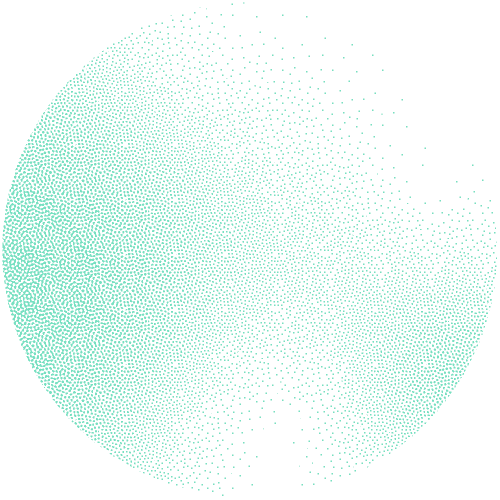ATGCCGGAATTGGCACATAACAAGTACTGCCTCGGTCCTTAAGCTGTATTGCACCATATGACGGATGCCGGAATTGGCACATAACAAGTAC
TGCCTCGGTCCTTAAGCTGTATTGCACCATATGACGGATGCCGGAATTGGCACATAACAACGGTCCTTAAGCTGTATTGCACCATATGACG
GATGCCGGAATTGGCACATAACAAGTACTGCCTCGGTCCTTAAGCTGTATTTCGGTCCTTAAGCTGTATTCCTTAACAACGGTCCTTAAGG
ATGCCGGAATTGGCACATAACAAGTACTGCCTCGGTCCTTAAGCTGTATTGCACCATATGACGGATGCCGGAATTGGCACATAACAAGTAC
TGCCTCGGTCCTTAAGCTGTATTGCACCATATGACGGATGCCGGAATTGGCACATAACAACGGTCCTTAAGCTGTATTGCACCATATGACG
GATGCCGGAATTGGCACATAACAAGTACTGCCTCGGTCCTTAAGCTGTATTTCGGTCCTTAAGCTGTATTCCTTAACAACGGTCCTTAAGG


Introduction to Glycoinformatics - lectures and practicals



11 May 2021

11 May 2021




For-profit: 600 CHF

Next course(s):
| 30 May 2022 |

|
Streamed |
This course will be streamed only for registered participants.
Overview
The word glycoprotein is often used yet the “glyco” part is hardly ever described. This is the case, for instance, with viruses in which surface spike proteins are abbreviated GP, numbered HIV GP120, but remain depicted as a smooth fist-like structure. In reality, glycan molecules decorate a broad variety of surface or secreted proteins and the literature is filled with unnoticed references focusing on the “glyco” part.
This course is an opportunity to update and extend your knowledge of glycoproteins through the use of bioinformatics resources collectively called “glycoinformatics”. We will provide an overview of the challenging questions raised by the study of glycans as non-template driven molecules and the solutions that are currently proposed to store, search, analyse and visualise the effect(s) of protein glycosylation on protein structure, function(s) and interactions. We will make use of several glycomics resources on Expasy, the Swiss Bioinformatics Portal.
Audience
This course is targeting any life scientist, from academia or industry: biologists, biochemists, from master students to advanced researchers.
Learning objectives
At the end of the course, participants will be able to:
- list examples illustrating the importance of glycosylation
- check for known glycans when dealing with glycoproteins
- use the GlyConnect resource to investigate the potential for structural or functional changes
- use the UniLectin platform to evaluate glycan binding potential
- make educated guesses as to the feasibility of glycoprotein-protein interactions
Prerequisites
Knowledge / competencies
This course is designed for beginners in glycoinformatics or glycomics. Experience in using UniProt is required.
Technical
This course will be streamed, you are thus required to have your own computer with an internet connection.
Application
Registration fees are 120 CHF for academics and 600 CHF for for-profit companies. This includes course content material.
Deadline for registration and free-of-charge cancellation is set is set to May 11, 2021. Cancellation after this date will not be reimbursed. Please note that participation to SIB courses is subject to our general conditions.
You will be informed by email of your registration confirmation.
If you are interested in attending the lectures only, apply for free here.
Venue and Time
The course will start every day at 9:00 CET and end around 17:00 CET using Zoom. Precise information will be provided to the participants before the course.
Preliminary Schedule
Day 1:
9:00-12:00 CET
- The glycoinformatics landscape (break)
- Glycans and glycoproteins:
-- Introduction to glycomics@ExPASy
-- Glycan structure drawing software
Lunch break
13:00-15:00 CET (hands-on exercises)
- Tutorial: GlyTouCan
- Tutorial: GlyConnect
15:30-17:00 CET (hands-on exercises)
- Analysing site-specific data and generating glycoprofiles
- Tutorial: Glynsight, Compozitor
Day 2:
9:00-12:00 CET
- Glycan-protein interactions(break)
- Glycan-binding proteins
-- Introduction to UniLectin
-- Predicting lectins in genomic data
-- A few practical examples
Lunch break
13:00-15:00 CET (hands-on exercises)
- Tutorial: UniLectin
- Tutorial: SugarBindDB, Glydin’
15:30-17:00 CET (hands-on exercises)
- To be defined
- Wrap-up
Additional information
Coordination: Monique Zahn, SIB Training Group.
We will recommend 0.5 ECTS credits for this course (given a passed exam at the end of the course).
You are welcome to register to the SIB courses mailing list to be informed of all future courses and workshops, as well as all important deadlines using the form here.
SIB abides by the ELIXIR Code of Conduct. Participants of SIB courses are also required to abide by the same code.
For more information, please contact training@sib.swiss.
